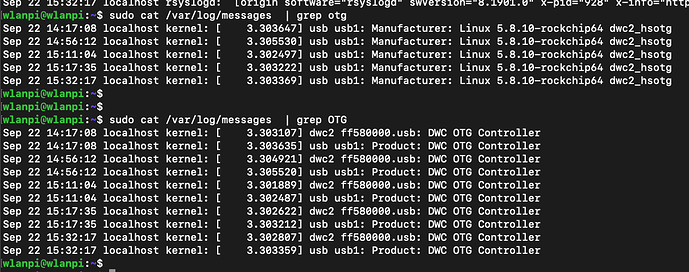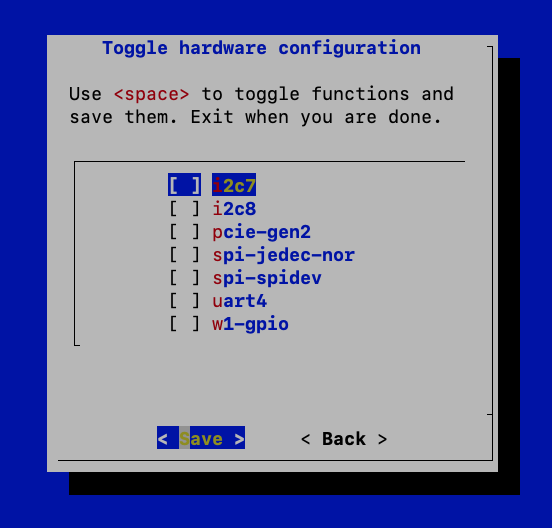Jerry from the WLAN Pi team managed to enable OTG on the Rock Pi E running Armbian. Here are his instructions for everyone’s reference:
Convert DTB to DTS
sudo dtc -I dtb /boot/dtb/rockchip/rk3328-rock-pi-e.dtb -O dts -o /boot/dtb/rockchip/rk3328-rock-pi-e.dts
Modify rk3328-rock-pi-e.dts
sudo nano /boot/dtb/rockchip/rk3328-rock-pi-e.dts
Locate section usb@ff580000
usb@ff580000 {
compatible = "rockchip,rk3328-usb\0rockchip,rk3066-usb\0snps,dwc2";
reg = < 0x00 0xff580000 0x00 0x40000 >;
interrupts = < 0x00 0x17 0x04 >;
clocks = < 0x02 0x14d >;
clock-names = "otg";
dr_mode = "host";
g-np-tx-fifo-size = < 0x10 >;
g-rx-fifo-size = < 0x118 >;
g-tx-fifo-size = < 0x100 0x80 0x80 0x40 0x20 0x10 >;
phys = < 0x5a >;
phy-names = "usb2-phy";
status = "okay";
phandle = < 0x9d >;
};
Modify dr_mode
Change
dr_mode = “host”;
To
dr_mode = “otg”;
Convert DTS file back to DTB format
sudo dtc -I dts /boot/dtb/rockchip/rk3328-rock-pi-e.dts -O dtb -o /boot/dtb/rockchip/rk3328-rock-pi-e-rev01.dtb
Add DTB to armbianEnv.txt
sudo nano /boot/armbianEnv.txt
Add the following line
fdtfile=rockchip/rk3328-rock-pi-e-rev01.dtb
Should look like this - armbianEnv.txt
verbosity=1
bootlogo=false
overlay_prefix=rockchip
rootdev=UUID=8a77dff9-013f-4a2f-8c9b-4e2c0afb076d
rootfstype=ext4
console=serial
overlays=i2c7 i2c8
usbstoragequirks=0x2537:0x1066:u,0x2537:0x1068:u
fdtfile=rockchip/rk3328-rock-pi-e-rev01.dtb
Add g_ether module
sudo nano /etc/modules
Add the following to /etc/modules
g_ether
Reboot and OTG should be working!
Cc: @igorp




